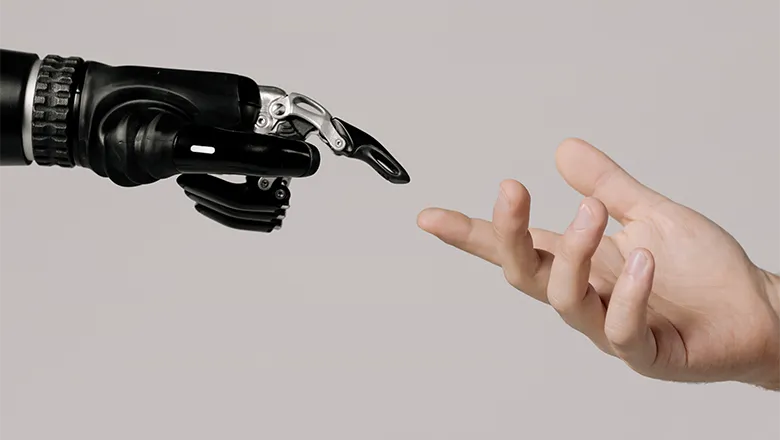A project led by Professor David Whetham has been awarded a grant from DSTL to develop future human technologies

A team of King's researchers are to test an ethics framework for using technologies to augment human performance for the UK Ministry of Defence. The project will be run by the King's Centre for Military Ethics Led by Professors David Whetham and Martin Bricknell, and has received substantial funding from the Defence, Science & Technology Laboratory (DSTL)
Human Performance Modification is the use of a range of technologies to temporarily or permanently augment human performance - restoring, optimising or enhancing existing biological potential.
The potential use of human augmentation in a military context raises a series of substantial ethical concerns which the research team will look to explore. For example reversible and irreversible augmentations would each raise significant ethical issues for a soldier's return to civilian life, as well as questions about their conduct on the battlefield. Balancing risks is therefore key to any framework to be applied in this area.
While there are a range of legal considerations and principles that are directly applicable to Human Augmentation, there is no comprehensive normative framework to apply, and no dedicated oversight body, mechanism, or committee currently with the mandate to apply it for Defence.
The research project aims to test a hybrid bio ethics framework, tailored to a military environment, to understand how well this works in practice. Alongside the project leads, Dr Marina Miron, Defence Studies Department, will support alongside external researchers from Compass Ethics, the University of Portsmouth and University of Cologne.
Military Ethics: Cards for Humanity, and the professional military ethics educational material it is based on, was beta tested by military personnel in Australia, Canada, Colombia, Egypt, France, Germany, Jordan, Sweden, Turkey, the United Kingdom, and the United States of America, amongst others from 2019 through 2021. More material is added on an ongoing basis to keep the conversation current and inclusive. The app will continue to grow and be refined with feedback from military and academic users.
A British military trainer called the cards "by far the best resources for generating conversations about ethics" he had come across in his 28 years in the Army.
Talking about ethics training and education, Brigadier Toby Rowland said
time spent considering these issues as part of ongoing professional development and in particular prior to operational deployment definitely plays dividends later on–
The Military Ethics: Cards for Humanity app can be downloaded for free on Apple and Android operating systems and currently covers topics in English, Arabic, French, German, Spanish, Serbian, and Turkish, with more language options proposed for the future.






